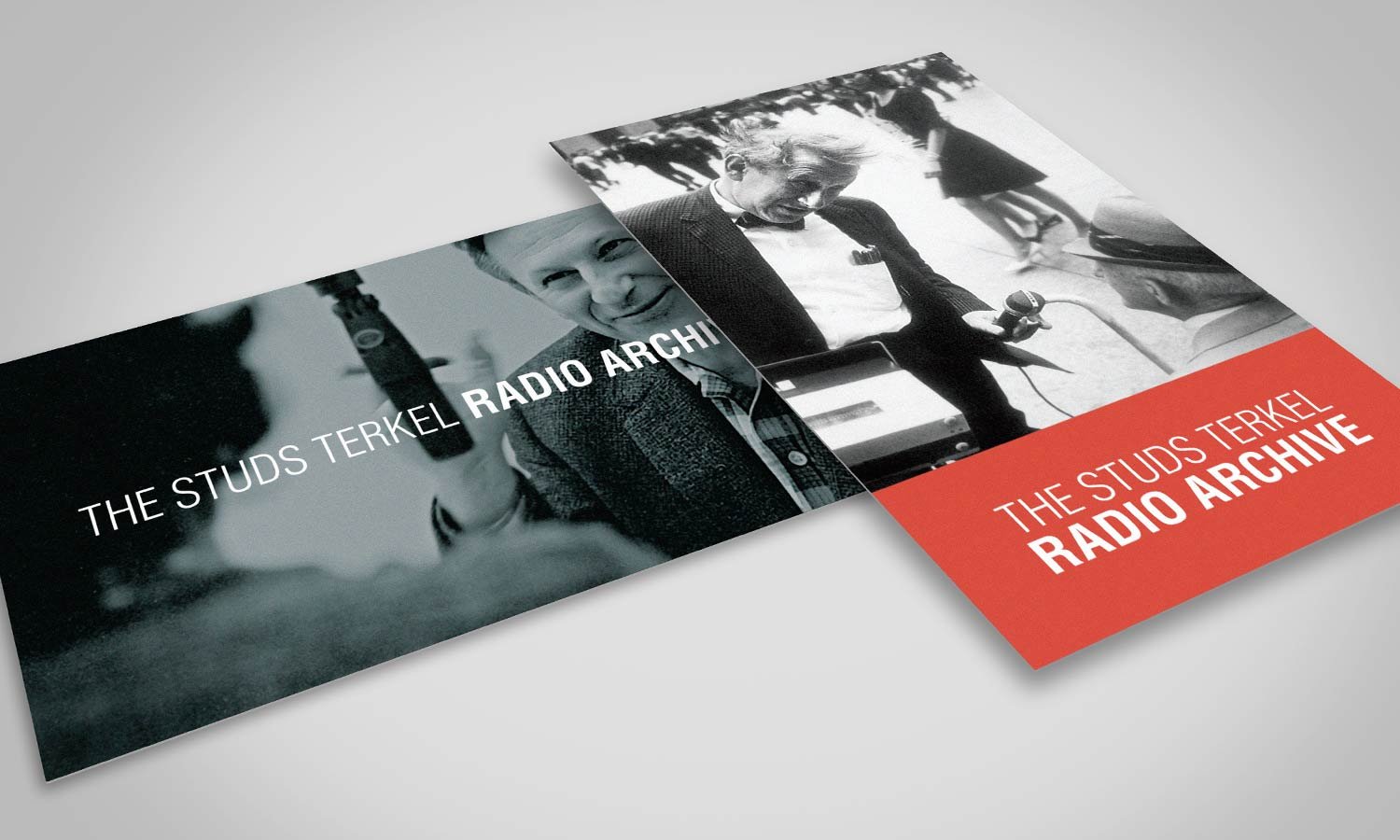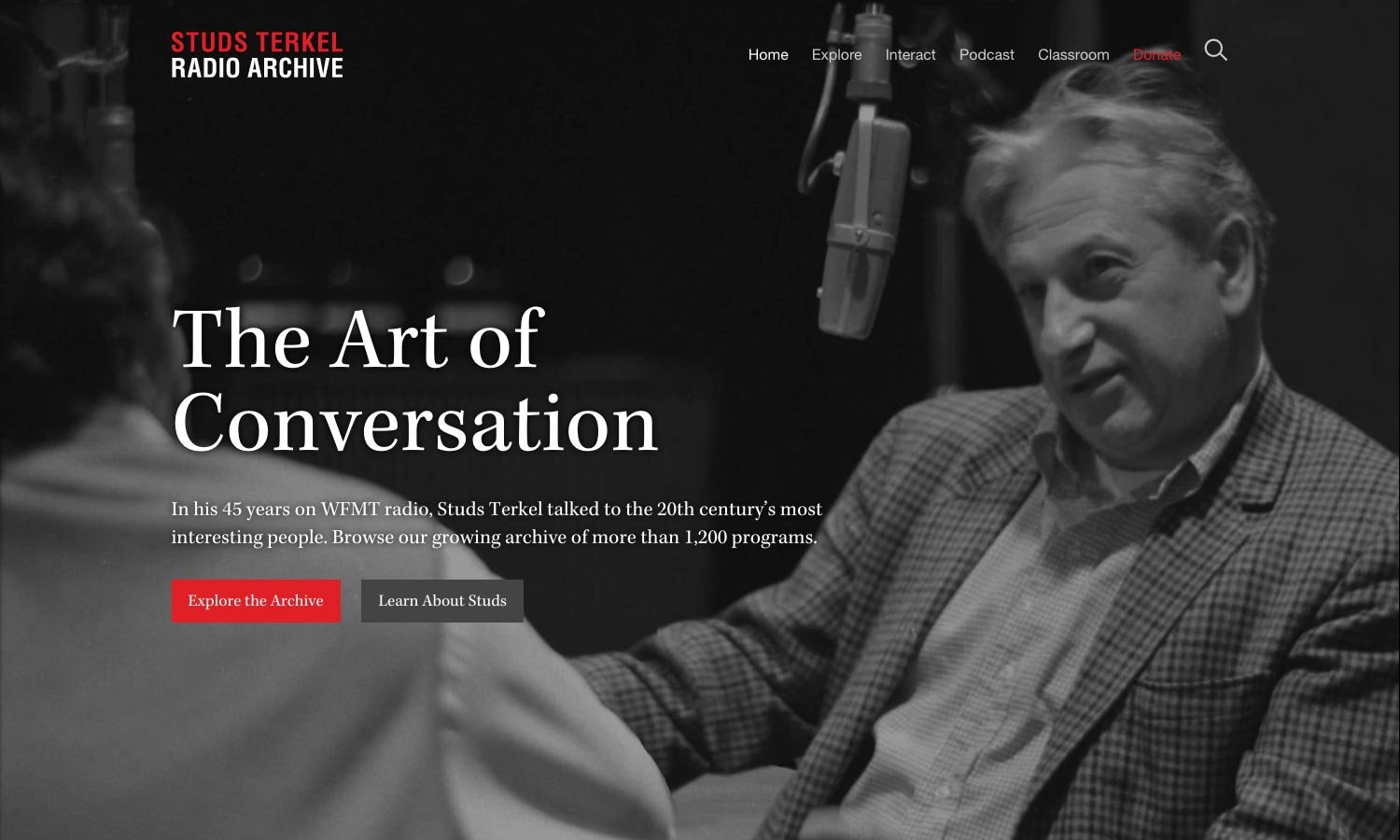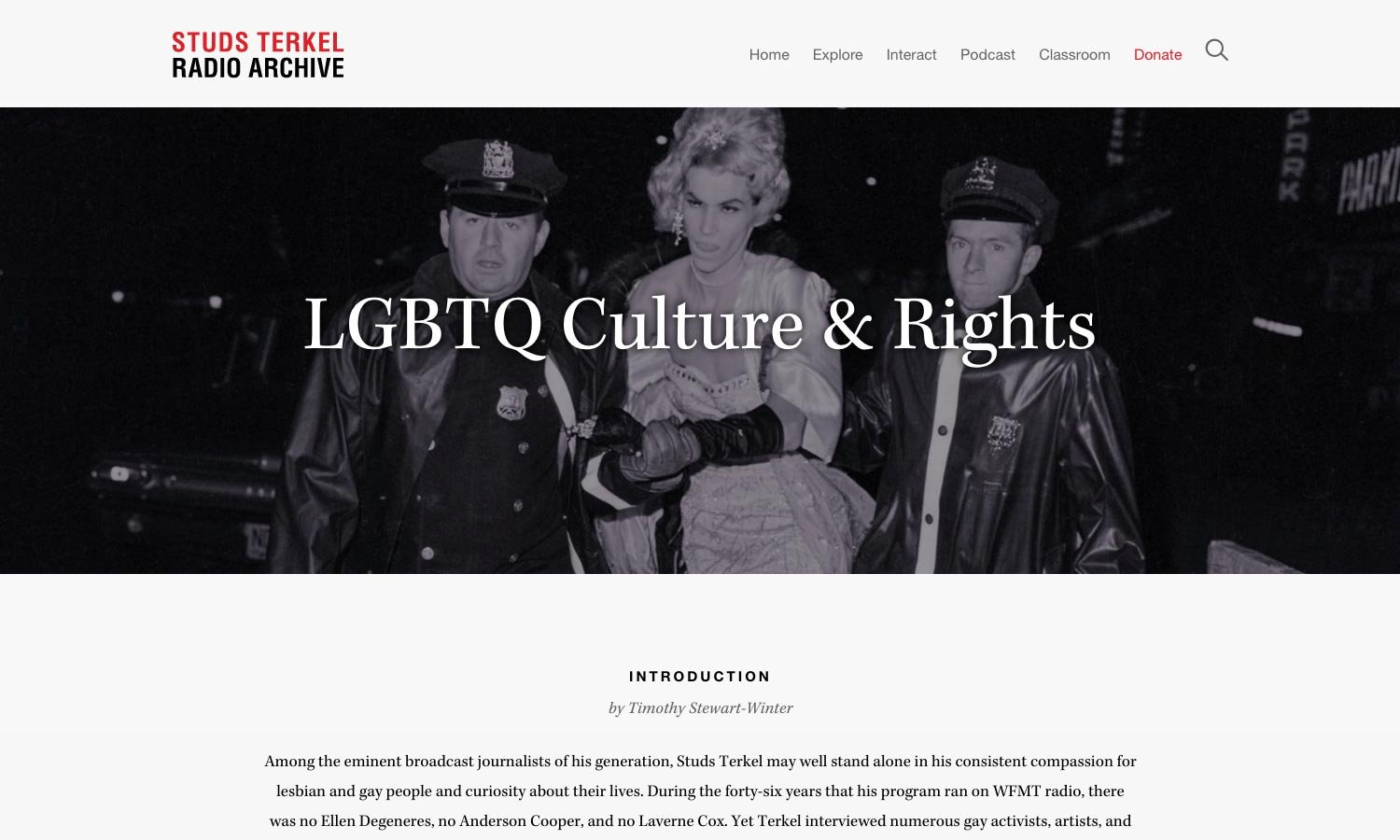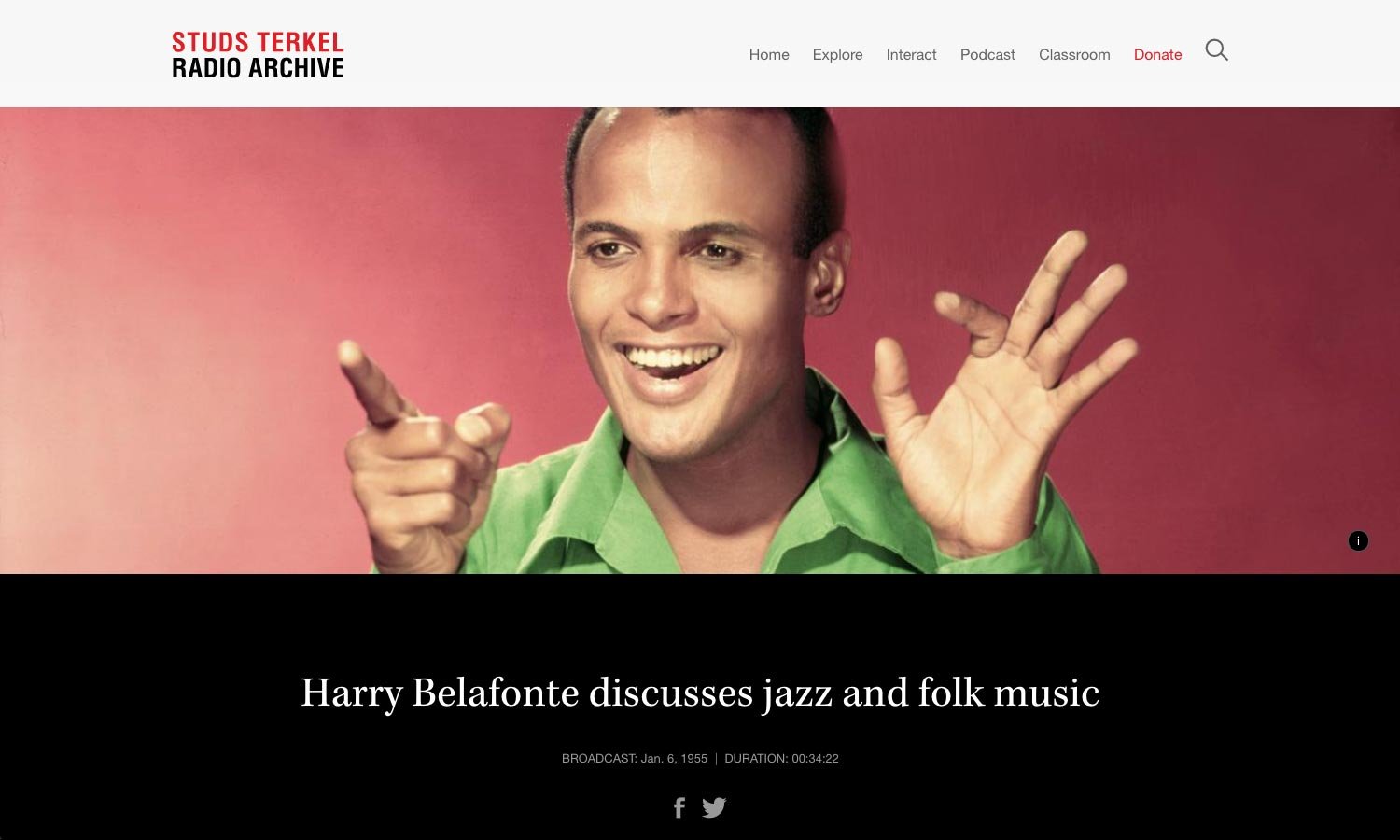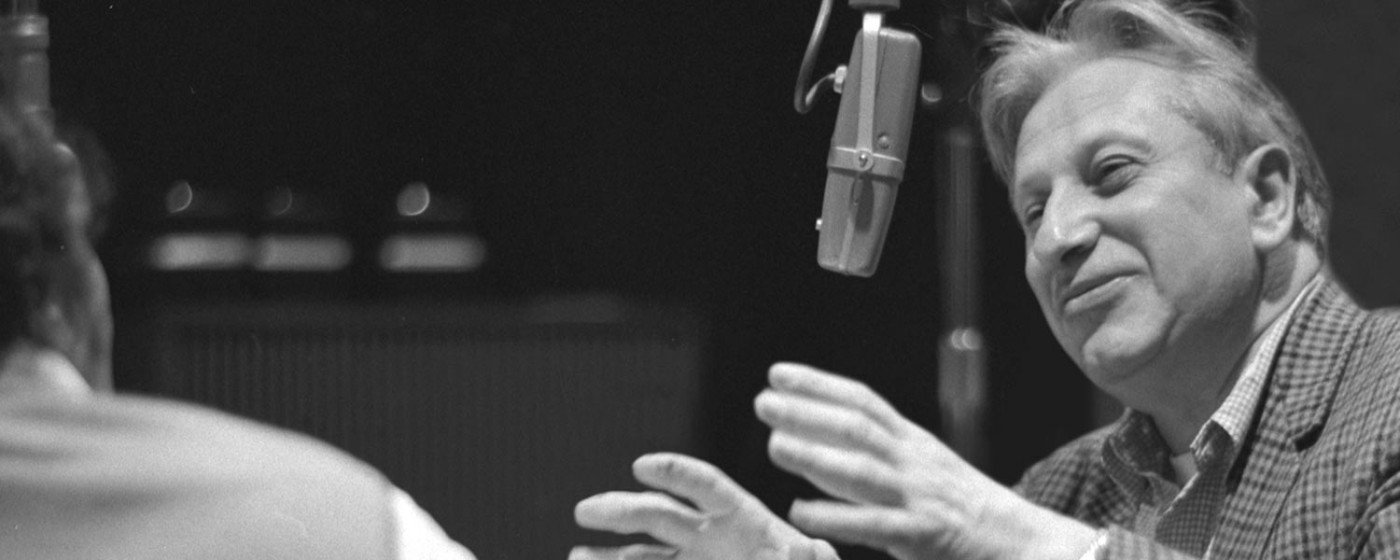
CASE STUDY
Reviving a radio icon: Studs Terkel Radio Archive
Over the course of a five-year collaboration with WFMT Radio Network, we worked to renew awareness of Studs Terkel and celebrate his legacy as an interviewer.
The beloved Pulitzer Prize-winning author, oral historian, and radio personality spent 45 years at WFMT, where he talked with the 20th Century’s most notable movers and shakers—as well as everyday folks struggling to making a living in Chicago. His innovations in interviewing and sound experiments preceded NPR and may have inspired much of what we now take for granted in public programming.
For years, these programs were stored on thouands of reels at the Chicago History Museum. There was no way for the public to gain access to this amazing oral history of over 5,000 interviews (over 9,000 hours) with personalities ranging from Leonard Bernstein to Muhammad Ali, from Simone de Beauvoir to Janice Joplin.
That’s why the Library of Congress began the arduous process of digitizing the entire collection. In parallel, Tony Macaluso (WFMT’s Director of Syndication at the time) spearheaded the initiative to develop an online home for this massive digital audio archive.
Early in the engagement, Jell developed branding and design concepts for StudsTerkel.org to help drive WFMT’s fundraising campaign to underwrite completion of the project. We launched a microsite to coincide with “Let’s Get Working,” a three-day festival and tribute to Studs Terkel presented by The University of Chicago, UChicago Arts, and Reva and David Logan Center for the Arts.
These intermediate steps proved critical to the success of WFMT’s development efforts and its relationships with partner organizations like Chicago History Museum, Chicago Public Library, Library of Congress National Audiovisual Conservation Center, The Poetry Foundation, and PRX.
With the backing of two NEH grants and Kickstarter funding, we launched the Studs Terkel Radio Archive on Studs’s birthday in 2018. The Archive features thousands of programs, an interactive transcript player, a podcast by Eve Ewing, and the ability to explore by keywords, tags, topics, and the profession of the interview subject. The launch received global media attention, including from The New York Review of Books, Wall Street Journal, and The New York Times.

